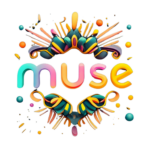Digital Marketing Transformation is the process of leveraging digital technologies to reshape and optimize marketing strategies, operations, and customer experiences. It goes beyond the adoption of digital tools and platforms, encompassing a holistic change in mindset, culture, and processes. The goal is to enhance the overall marketing performance and adapt to the evolving preferences of the digitally empowered consumer.
In an era dominated by digital advancements, businesses are continually redefining their strategies to stay ahead in the competitive landscape. Digital Marketing Transformation has emerged as a critical element for organizations seeking to thrive in the digital age.
Significance of Digital Marketing Transformation:
Consumers are increasingly relying on digital channels for product discovery, research, and purchasing. Digital Marketing Transformation enables businesses to align their strategies with changing consumer behavior.
Organizations that embrace digital transformation gain a competitive edge. By leveraging data-driven insights and agile marketing methodologies, businesses can respond faster to market changes and consumer demands.
Digital transformation allows for a more personalized and seamless customer experience. From targeted advertising to AI-driven chatbots, businesses can engage with their audience in more meaningful ways.
Key Components of Digital Marketing Transformation
Harnessing the power of data is a cornerstone of digital transformation. Analyzing consumer behavior, preferences, and market trends provides valuable insights for informed decision-making.
Creating relevant and engaging content is essential for digital success. A content strategy that aligns with the buyer’s journey can drive brand awareness, lead generation, and customer loyalty.
Social media platforms serve as dynamic channels for brand promotion and customer engagement. Integrating social media into the marketing mix is crucial for maintaining a strong online presence.
Automation tools and artificial intelligence streamline marketing processes, enhance efficiency, and enable personalized interactions at scale. Chatbots, predictive analytics, and automated email campaigns are just a few examples.
With the majority of internet users accessing content through mobile devices, optimizing marketing strategies for mobile platforms is non-negotiable. Responsive design, mobile apps, and SMS marketing contribute to a seamless mobile experience.
Navigating the Seas of Change
- Executives should champion the change, set clear objectives, and foster a culture of innovation.
- Training programs can help employees adapt to new technologies and methodologies.
- Continuous iteration and improvement are crucial in the fast-paced digital environment.
- Understanding customer needs and preferences should drive decision-making processes.
- Regularly review key performance indicators (KPIs) and iterate strategies based on data-driven insights.
Conclusion
Digital Marketing Transformation is not a destination but an ongoing journey fueled by innovation and adaptability. As technology continues to evolve, businesses must remain vigilant, ready to pivot and embrace new opportunities. By understanding the significance of digital transformation, focusing on key components, and navigating the seas of change with strategic leadership, organizations can position themselves for sustained success in the digital age.

